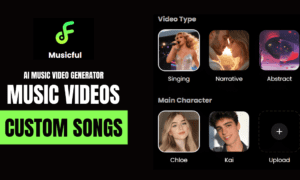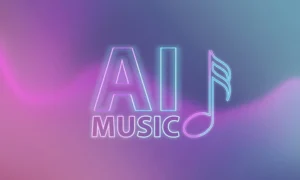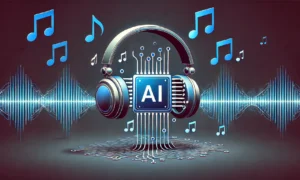Introduction
In today’s fast-paced world, music and technology have joined forces to create something truly remarkable: AI music generators. These innovative tools are transforming the way we think about music and how it’s created. Let’s dive in and explore how AI is making waves in the world of music.
A Brief History of AI in Music
Before we jump into the exciting world of AI music generators, let’s take a quick trip back in time. AI, or artificial intelligence, has been a part of the music scene for decades. Early on, scientists and musicians began experimenting with computers to see if they could compose music. While these early attempts were basic, they laid the groundwork for what was to come.
Over the years, AI has grown in sophistication. Milestones were reached as technology improved. But it’s only in recent times that AI music generators have truly come into their own, opening up new possibilities for musicians and composers.
Understanding AI Music Generators.
Now that we have a sense of AI’s history in music, let’s get to the heart of the matter: AI music generators. But what are they exactly? At their core, AI music generators are software programs that use artificial intelligence to create music. They’re like musical robots, but instead of nuts and bolts, they use lines of code.
The technology behind AI music generators is fascinating. These programs analyze vast amounts of musical data, learn from it, and then use that knowledge to compose original pieces of music. It’s like having a virtual composer at your fingertips.
Enhancing Creativity with AI.
Some might worry that AI music generators replace human creativity, but that’s not the case. Instead, they enhance it. Musicians can collaborate with AI, using it as a tool to amplify their creative vision. It’s like having a co-writer who can instantly generate musical ideas to explore together.
Additionally, AI can assist in tasks that are time-consuming for humans, such as transcribing music or analyzing complex compositions. This allows artists to focus more on the creative aspects of music-making, rather than getting bogged down in technical details.
Challenges and Ethical Considerations
While the rise of AI music generators is undoubtedly exciting, it’s not without its challenges and ethical questions. In this section, we’ll delve into some of these important considerations.
Copyright and Ownership Issues
One of the primary concerns in the world of AI-generated music is copyright and ownership. Who owns the music created by an AI system? Is it the programmer, the musician who uses the AI, or the AI itself? These questions are complex and are still being explored in legal and ethical debates. Ensuring fair compensation for all parties involved is a significant challenge that needs to be addressed.
The Role of Human Musicians
Another critical question is the role of human musicians in an AI-dominated music landscape. While AI can generate music, it lacks the emotional depth and unique perspectives that human artists bring to their creations. Some argue that AI music should be seen as a tool rather than a replacement for human musicians. Striking the right balance between AI and human creativity is an ongoing discussion.
AI Music Generators in Popular Culture
AI-generated music is not confined to the experimental fringes of music. It’s making its way into popular culture, influencing the music we hear on the radio and in films. In this section, we’ll explore some examples of AI-generated music in the mainstream and consider the cultural and artistic implications.
How to Get Started with AI Music Generators
Excited to explore AI music generation yourself? This section is your guide to getting started with AI music generators, including the tools and platforms available for musicians and some helpful tips for using AI in music production.
Tools and Platforms for Musicians
We’ll introduce you to user-friendly AI music generation tools and platforms that cater to musicians of all skill levels. Whether you’re a seasoned professional or just starting your musical journey, there’s likely an AI tool that can assist you in your creative process.
Conclusion
We saw the transformation power of AI. It has made it possible to create music compositions more easily, reducing obstacles for musicians and simplifying the production process. But there are still problems with ownership, authenticity, and the role of human musicians. Artificial intelligence is neither replacing creativity, nor enhancing it. It’s a new tool for musicians that will allow them to express themselves, experiment and innovate.
In our musical future, remember: the soul of music remains rooted in human emotion and expression. AI may help, but every melody’s heartbeat, every note’s passion, and every composition’s story comes from the human spirit. With AI as our companion, we journey into a harmonious future where music evolves, captivates, and resonates. To redefine what is possible in music, technology and humanity are joining forces.



































